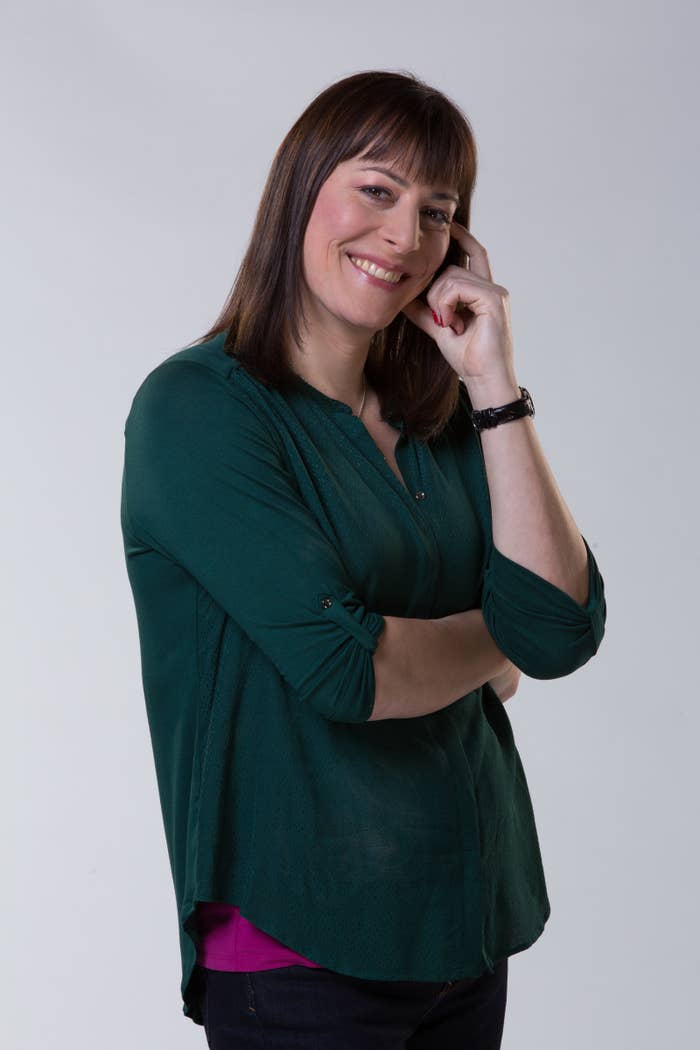
A clutch of producers, writers, and editors sit in a horseshoe shape at the front of a tiny screening room in central London. They jabber away about their new show, enthusing, gesticulating. In the middle sits Rebecca Root – tall, silent, immaculate deportment – listening. When she eventually speaks, with a kind of languid grace, and with a voice so resonant and reedy it calls to mind a clarinet bubbling away, everyone stops, enrapt.
The bewitchment began half an hour earlier with the first screening of the pilot episode of a sitcom no one could have predicted even five years ago, a TV show that is more than a TV show: Britain's first comedy drama about a transgender woman. Boy Meets Girl might be a rom-com, traditional in form, but it vibrates with the new – the poignancy of a culture shifting.
Root plays Judy, a 40-year-old singleton still living with her mother. In a bar, by chance, she meets Leo (played by Harry Hepple). Bambi-eyed and just 27, he is also still living with his folks, as well as his idiotic brother. All the peripheral characters are purposefully eccentric, providing a goofy backdrop for the lovers, who could otherwise be seen as the oddity. As farcical shenanigans ensue, there throughout is Root, still, contained, her eyes emitting through the subtlest of expressions all we need to know: She has dragged herself through pain to a haven, of sorts.
And so, as the pilot episode climaxes and Judy and Leo step towards each other in clumsy collision for their first kiss, it is so overwhelmingly beautiful, so damn novel to see a real trans woman playing a trans part on British television and – yes! – being in love, that tears spill in the audience.
We find a quiet bar upstairs to talk. Root perches on a stall, hands clasped over knee. Tiny swallows swoop across her scoop-necked top. Flight. Escape. The metaphor sings out. We begin, not with the show, but with her.
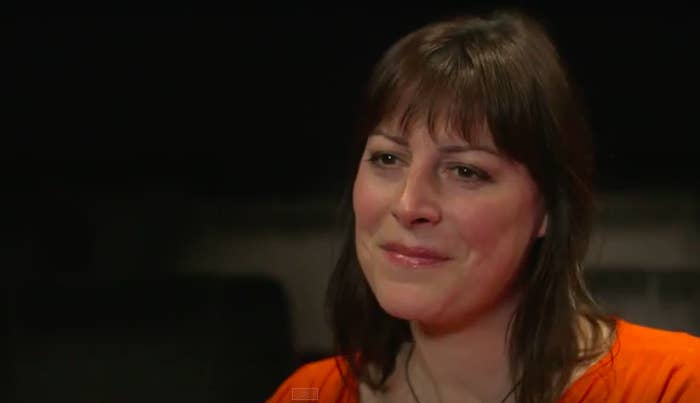
"My life is so much easier now than it was before," says Root. "Pre-transition I was…" She stops, eyes back and forth. "My life was in a downward spiral. I was not in a good place…" After a pause, she looks up.
"Transitioning was the best thing I ever did." The actress, stand-up comedian, and voice coach, now 46, started living as Rebecca in her early thirties.
"I finally cleared the air in my own heart and mind," she says. "I said, 'OK, this is something I can't run away from.' I was just exhausted from running away from myself. When people find that truthful moment – clarity – then everything falls into place." She completed a master's degree and forged a successful career training actors in drama schools.
"The only thing that's not great is my love life. Oh, and I don't have my own flat. I'm 46 and I still flat-share. Can you believe that?" She laughs and laughs. We return to the subject of love. It is, after all, the focus of the sitcom, a desperately needed counterpoint to previous depictions of trans women: victims, prostitutes, freaks.
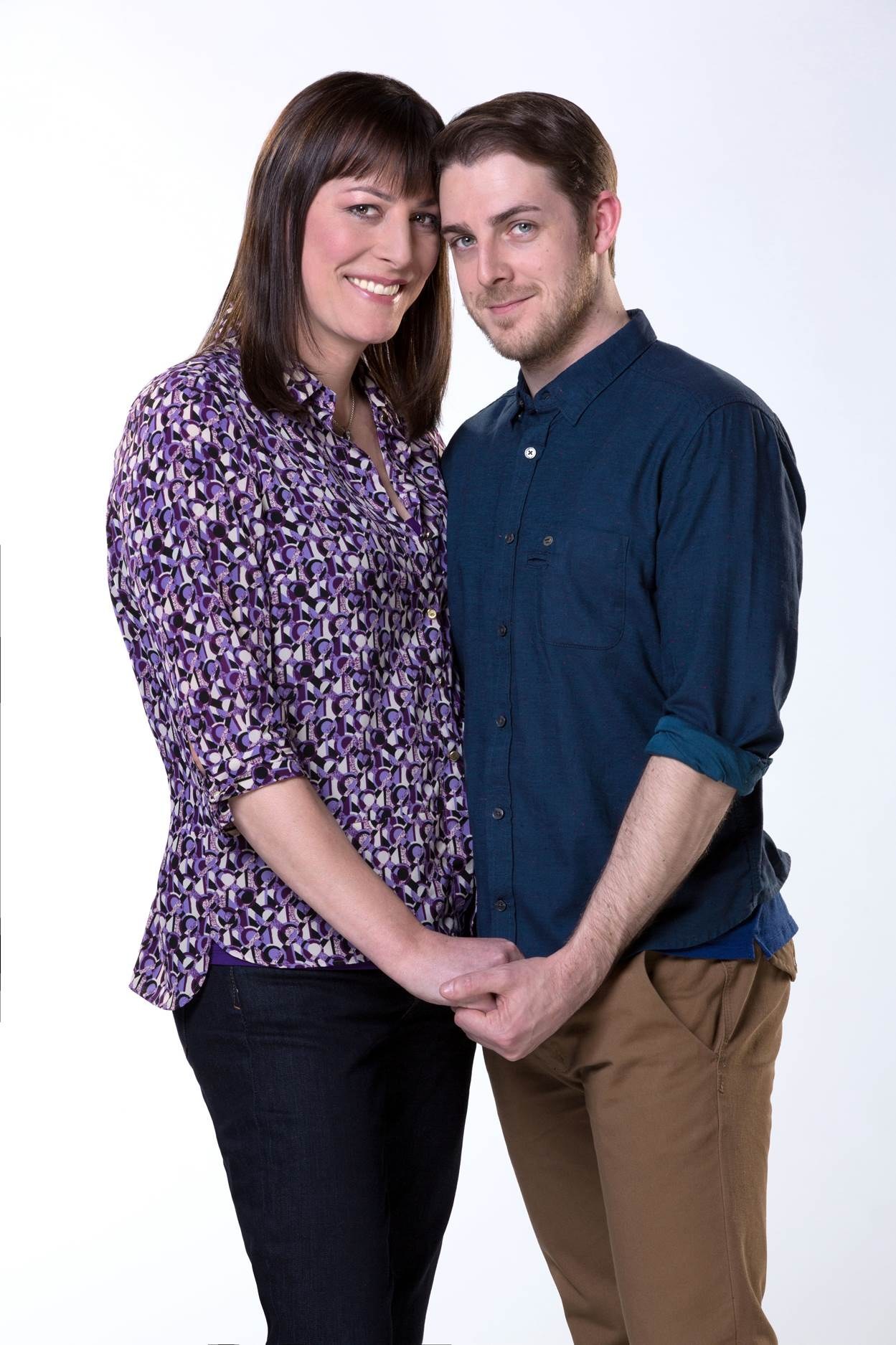
"I don't go on dates," she says. "I'm more fearful of rejection [than Judy]. The whole dating scene scares the bejesus out of me, so I just don't put myself in the middle of the M1 with a juggernaut coming towards me. It would be terrifying. Judy, on the other hand, she's got courage. I like that in her."
But what if an incredible person came along?
"If someone asked me on a date and I liked them enough then I probably would. It's all the internet dating stuff and being a serial dater. It's…hurtful." When the show comes out, there will surely be a flurry of propositions.
"Do you think so?" she asks, incredulous. It seems even on a physical level Root cannot see that which is hard to miss: immense cheekbones, impressively long limbs, wide, hazel eyes that reek of kindness. She reaches down to her bag and plucks out her business card. "I'm an incurable romantic. I believe in love and I would love to be in love." She hands over the card.
It reads: "For small creatures such as we, the vastness was bearable only through love." The quote is from Carl Sagan, the American scientist and astronomer who helped discover the surface temperature of Venus. To the Romans, of course, Venus was the god of love. The words sit below a seascape horizon with a vast sky, cumulous clouds billowing up. Why is the prospect of rejection so unbearable?
"Because I've expended a lot of energy in my life trying to overcome certain difficulties – my gender identity before I transitioned – and so I feel that it's just one more thing I don't need, so I protect myself," she says. "But there's a difference between going for a drink, it developing into the kiss, and then taking it further into the bedroom. That's an even scarier place for me because I'm self-conscious about my figure, I'm self-conscious about a certain lack of experience in certain things, and I'm just not exposing myself to those, maybe imagined, threats."
She tells a story about a recent cause for excitement, a "tall, dark, drop-dead gorgeous" actor who dropped round a watch she bought from him off eBay. They chatted in her house; they clicked. Root told him she was in a new sitcom, revealing only its name.
"I said, 'When you go home and google the show you'll find out all about it.'" She looks down. "It's a week now and I haven't heard from him."
A friend she confided in pointed out that there could be a million reasons he hasn't been in touch. "But I'm protecting myself," Root says. Was there a lot of rejection from friends and family when transitioning?
"No, not really," she says. (Her sister was in the audience at the screening.) "They were all very supportive. Really couldn't ask for more. There is rejection [for trans people], but it's not everybody's experience."
More and more teenagers are now able to begin transitioning before adulthood, a step that took Root more than 30 years to make. But growing up in Woking, Surrey, in the 1980s, she was able to at least find some escape, acting in the National Youth Theatre before studying at Mountview Academy of Theatre Arts. Does she regret waiting that long to be herself?
"I wish I'd been able to transition earlier but it was a long process," she says. "It took a long time to finally decide, 'OK, I'm definitely going to do this.' I did wobble, thinking, 'Could I be more fluid in my gender presentation?' But that was less of an option in the early '00s than it is today – people now are much more open to being somewhere in between or non-binary."
The struggle and length of that process has, in any case, served a valuable purpose in her career.
"It gives you raw material to draw on," she says. "I may have had shit in my life, but when you have that shit you can use that shit."
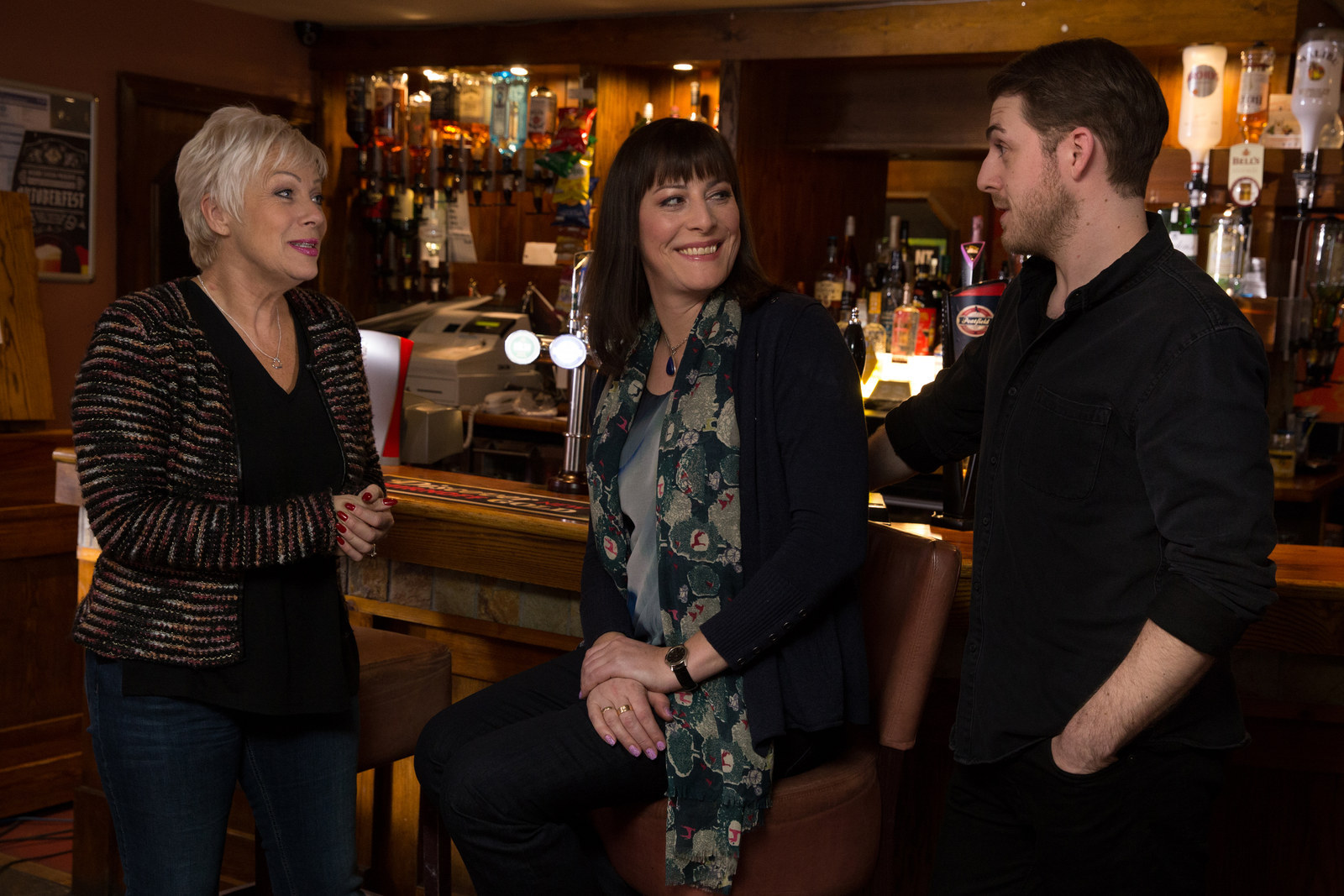
Debate rages about which actors should play trans roles, with many arguing such parts should be given to trans people. What is new and remarkable (in Britain at least) about this sitcom is that unlike with, say, Coronation Street's trans character, Hayley Cropper, played by Julie Hesmondhalgh, a cisgender woman, the BBC has cast an out and proud trans woman. It is also testimony to the corporation's commitment to diversity, given that the script, created by Elliott Kerrigan, won the BBC Writers Room Trans Comedy Award. But where does Root stand within the actors debate?
"It's tricky," she says, gingerly, slowing her speech as if entering a field rich with land mines. "I think every minority population should be approached in the first instance, and if nobody can be found you either change the character, or the very last resort is you find someone not from that population who can sympathetically, accurately portray that character. Certainly, people of one ethnicity playing another ethnicity is now very much frowned upon. And I think the same will eventually occur with gender identities."
Can someone who isn't trans ever truly understand?
"I don't know," she replies, caution returning. "It's a good question. As actors you have to use all your imaginative powers and creative ability to empathise. That's what we do. As a trans woman I would not be against playing male. Some trans women would not, they would not want to go back to that identity, but I'm an actor."
Root is also soon to become known for her role in The Danish Girl, about Lili Elbe, the first person in the world to undergo gender reassignment, in the 1920s. But Root plays a German nurse – not a trans part – and Eddie Redmayne takes the lead role of Elbe. Such casting, says Root, is justifiable.
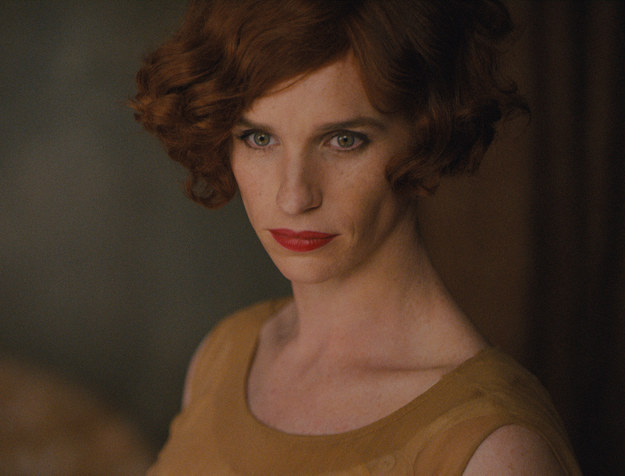
"The character Eddie plays goes through a transition from male to female so we see her in both states," she says. Her only regret is that such a role wasn't available to her when she was young enough to play it.
"Fifteen years ago I could have, should have…. That part could have been written for me." She frowns before moving on, hastily praising Redmayne.
"The scenes I was in with him, he was wonderful, and such a gorgeous, lovely man – interesting and interested. We clicked. He asked me so many questions, he wanted to know about my own experiences as a trans woman. He was keen, thirsty for information. He wants to portray the character very sensitively."
A bittersweet irony can loom for trans people approaching fame. For many who transition, being seen as their real – rather than birth – gender ("passing") is important, crucial, even. Celebrity erodes that possibility, as the public, however accepting, is aware of what came before. But Root seems unfazed.
"It's part of who I am and I don't hide it. When I transitioned someone would call me 'mate' or 'sir' and your bubble is burst – that's really hurtful. So to protect myself I then said to myself, 'I'm going to assume that everybody thinks I'm trans.' So then when people say they have no idea, that then is the other side of that bubble and it's quite flattering."
With a primetime BBC sitcom and a keenly anticipated movie both due out later this year, sudden recognition awaits Root, a potentially arresting, if not unwelcome, proposition after several minor TV parts (Midsomer Murders, Keeping Up Appearances, Casualty) failed to make her a name.
"I get stared at a lot anyway," she says. "I don't know if it's because I'm tall or people think I'm attractive or not, or because people think I'm trans, but I'm already used to being looked at in the street."
She has received some good advice about coping with mass attention from a fellow actor: former Doctor Who star Matt Smith.
"I bumped into him at a party and he said, 'Just go with it, don't let it get you down, enjoy it and be nice.'"
Something else awaits Root – the effects of Boy Meets Girl. Its delicate, human focus on love, and its framing of the characters so the two leads are the ones we relate to, is such that it could change attitudes across the country.
"I hope it will open people's eyes to a population that everyone thinks they know but very few people actually do," she says. "They think they have an idea of what it's like and yet…" Root's voice fades, eyes flickering again as a thousand memories surface. "I just...hope people learn something."
